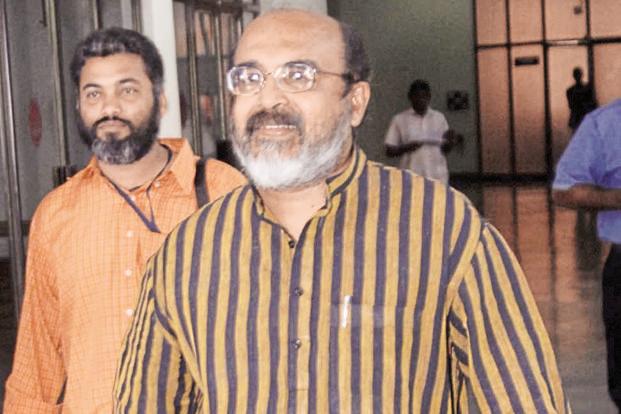Note ban adds to hurdles in implementation of GST
Live mint
By Remya Nair | Nidheesh M.K.
Fri, Dec 02 2016. 12 41 AM IST
Red flags raised by Bengal, Kerala set to dominate agenda at GST council meeting.

Kerala finance minister Thomas Isaac said the centre’s handling of the fallout of demonetisation had vitiated the atmosphere of the GST talks.
New Delhi/Bengaluru: Will the goods and services tax (GST) become collateral payback to demonetisation politics?
The build-up to the GST council meeting beginning on Friday suggests that the fate of the country’s single biggest tax reform is hanging by a thread.
Two of its biggest critics in the council, Kerala and West Bengal, on Wednesday red-flagged GST, arguing for a rethink on the timetable—rolling it out on 1 April—in the backdrop of the economic dislocation caused by demonetisation of high-value banknotes.
The meeting, already postponed once earlier, is scheduled to debate the draft GST laws—the central GST law, the state GST law, the integrated GST law and the draft compensation law.
The contentious issue of sharing of administrative control between the centre and the states also remains unresolved despite being discussed in all the GST council meetings so far.
However, the impact of demonetisation on state finances is expected to dominate discussions and could overshadow the talks around the laws.
The passage of these laws in the ongoing winter session is imperative for the government to meet its roll-out deadline for GST.
In an interview to TV news channel NDTV on Wednesday, West Bengal finance minister Amit Mitra said the timing for GST’s implementation may not be right, given the stress on state finances after demonetisation.
The finance minister pointed out that states are not prepared for this “double whammy” and highlighted the impact on tax revenues stemming from the fallout of demonetisation on sectors such as hospitality, transportation and manufacturing.
“We must do GST, but do it at a time when it is feasible, successful, when states’ revenues do not decline significantly, centre is able to compensate the states and federal polity of India is preserved. I do not see that at this time,” Mitra said.
Mitra’s party, the Trinamool Congress, has been at the forefront of protests against the Narendra Modi government’s decision to scrap old Rs500 and Rs1,000 notes with effect from 9 November.
Kerala finance minister Thomas Isaac agreed with Mitra’s views.
“The state’s revenues are suffering. I don’t want to be seen as opposing GST, but there is a lot of merit in what he (Mitra) said. We will take a common stand through consideration,” he said.
Isaac said the government’s handling of the fallout of demonetisation had vitiated the atmosphere of the GST talks.
“There is a sense that instead of cooperation, a picture of confrontation has emerged,” he said.
demonetisation and GST should not be linked, said A.K. Verma, a Kanpur-based political analyst and political science professor at Christ Church College.
“Why should GST be collateral damage when the states are being protected for any revenue loss arising from a transition to GST?” Verma said. “The central government has given its word that the states will be compensated.”